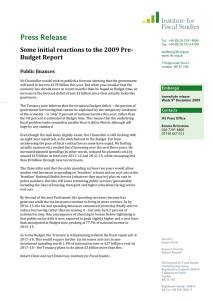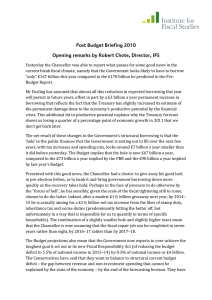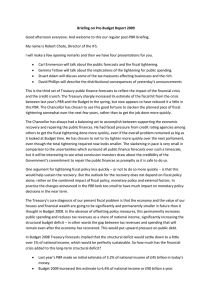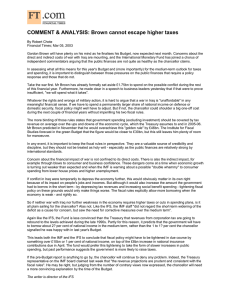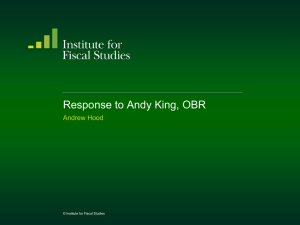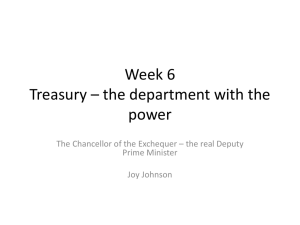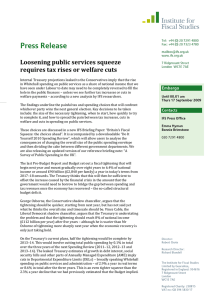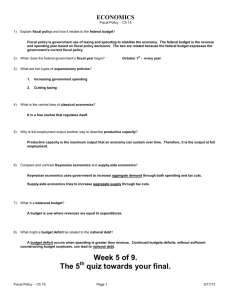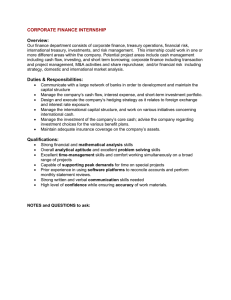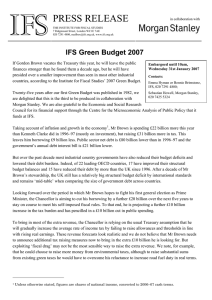Last November’s Pre-Budget Report contained a £25 billion short-term
advertisement
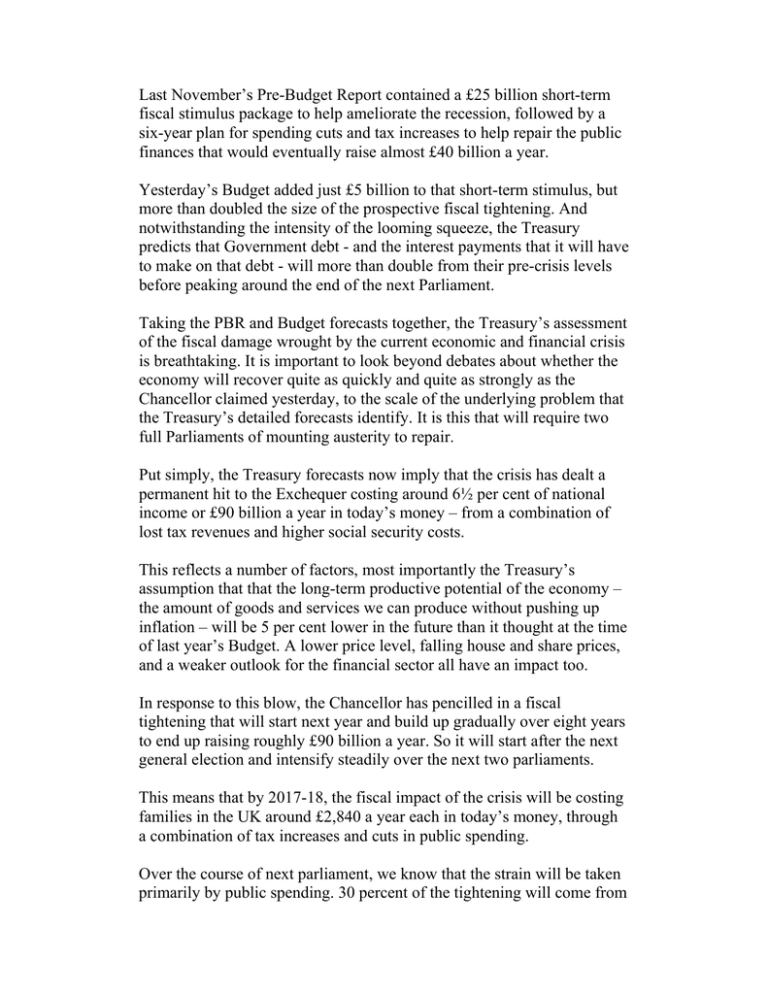
Last November’s Pre-Budget Report contained a £25 billion short-term fiscal stimulus package to help ameliorate the recession, followed by a six-year plan for spending cuts and tax increases to help repair the public finances that would eventually raise almost £40 billion a year. Yesterday’s Budget added just £5 billion to that short-term stimulus, but more than doubled the size of the prospective fiscal tightening. And notwithstanding the intensity of the looming squeeze, the Treasury predicts that Government debt - and the interest payments that it will have to make on that debt - will more than double from their pre-crisis levels before peaking around the end of the next Parliament. Taking the PBR and Budget forecasts together, the Treasury’s assessment of the fiscal damage wrought by the current economic and financial crisis is breathtaking. It is important to look beyond debates about whether the economy will recover quite as quickly and quite as strongly as the Chancellor claimed yesterday, to the scale of the underlying problem that the Treasury’s detailed forecasts identify. It is this that will require two full Parliaments of mounting austerity to repair. Put simply, the Treasury forecasts now imply that the crisis has dealt a permanent hit to the Exchequer costing around 6½ per cent of national income or £90 billion a year in today’s money – from a combination of lost tax revenues and higher social security costs. This reflects a number of factors, most importantly the Treasury’s assumption that that the long-term productive potential of the economy – the amount of goods and services we can produce without pushing up inflation – will be 5 per cent lower in the future than it thought at the time of last year’s Budget. A lower price level, falling house and share prices, and a weaker outlook for the financial sector all have an impact too. In response to this blow, the Chancellor has pencilled in a fiscal tightening that will start next year and build up gradually over eight years to end up raising roughly £90 billion a year. So it will start after the next general election and intensify steadily over the next two parliaments. This means that by 2017-18, the fiscal impact of the crisis will be costing families in the UK around £2,840 a year each in today’s money, through a combination of tax increases and cuts in public spending. Over the course of next parliament, we know that the strain will be taken primarily by public spending. 30 percent of the tightening will come from lower public sector capital investment plans and 50 percent from cuts in other public spending. Only 20 percent will come from tax increases. Moving into the following parliament, none of the tightening is projected to come from cuts in investment. It will have to come from some combination of as-yet unannounced tax increases and cuts in noninvestment spending. Much attention has focussed on the income tax increases on the rich, which the Treasury hopes will raise £7 billion a year. Even if this estimate is correct, the gain will partly be offset by losses of VAT and other indirect tax revenues buried in other Budget forecasting changes. We should also bear in mind that increases in fuel duty and National Insurance will raise a roughly similar amount – and from a much broader range of families. And all the tax increases announced to date will in total raise only about 10% of the money the Treasury is looking for by 2017– 18. So the main burden of the looming tightening – at least over the next few years – is likely to fall on the users of public services. Where does all this leave the credibility of fiscal policy? If investors are not convinced that the public finances will be repaired over a sensible timescale, they will charge the government more to borrow from them. The Chancellor has laid out a broad-brush plan to deal with the problem, but with most of the detail – notably where the cuts will fall within public services – yet to be filled in. Investors may take the view that a problem of this scale should be dealt with more quickly than Mr Darling plans to do. Convincing people that you will do what you say over two years is hard enough, let alone over two Parliaments. Investors also read opinion polls – it is not just the Labour Party that need to convince the markets (and the voters) that they are up to the challenge.
